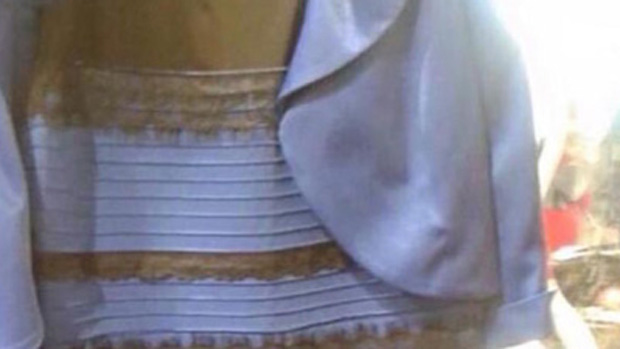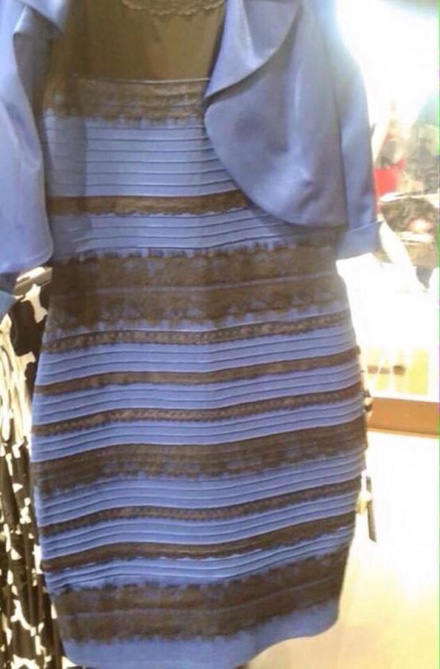What colour is the dress? Science may have the answer
Blue and black or white and gold: Twitter descends into slanging match over the colour of a dress

A free daily email with the biggest news stories of the day – and the best features from TheWeek.com
You are now subscribed
Your newsletter sign-up was successful
Tempers frayed across social media after a photograph of a dress went viral (see the full picture below), polarising people into two camps: those who see it as white and gold versus those who see it as blue and black.
What is going on?
The dress in question (or just #TheDress on Twitter) was originally posted to Tumblr, and soon became a topic of hot debate, with Twitter users weighing in to offer their view on the dress's colour. The debate was fuelled further by the intervention of a number of high-profile celebrities:
The Week
Escape your echo chamber. Get the facts behind the news, plus analysis from multiple perspectives.

Sign up for The Week's Free Newsletters
From our morning news briefing to a weekly Good News Newsletter, get the best of The Week delivered directly to your inbox.
From our morning news briefing to a weekly Good News Newsletter, get the best of The Week delivered directly to your inbox.
If that's not White and Gold the universe is falling apart. Seriously what is happening????— Anna Kendrick (@AnnaKendrick47) February 27, 2015
I'm Seeing Blue And Black, As Of Now— Jaden Smith (@officialjaden) February 27, 2015
I don't understand this odd dress debate and I feel like it's a trick somehow.I'm confused and scared.PS it's OBVIOUSLY BLUE AND BLACK— Taylor Swift (@taylorswift13) February 27, 2015
Why are people seeing it differently?
"I’ve studied individual differences in colour vision for 30 years, and this is one of the biggest individual differences I’ve ever seen," Jay Neitz, a colour-vision researcher at the University of Washington in Seattle, told Wired.
According to Neitz, the way we perceive colour changes over the course of our lifetime. People are more sensitive to blue light when they are younger and less when they get older, which he believes could explain why younger internet users report seeing a blue and black dress while older ones see gold and white.
However, a quick look through social media reveals that the division between camps is not solely based on age.
A free daily email with the biggest news stories of the day – and the best features from TheWeek.com
Is there another explanation?
Wired subjected the image to further analysis, pulling out the key colours with Photoshop and testing where they sit on the Red Green Blue (RGB) spectrum. The results brought back results that were relatively inconclusive – a range of soft grey blues and orange browns.
According to Bevil Conway, a neuroscientist who studies colour and vision at Wellesley College, Massachusetts, the way humans perceive colours is contextual. This means that any of the colours taken in isolation from the dress and viewed against a black background will appear completely differently from how they will if viewed against a white background.
Science Daily suggested that the way the dress appears in the photo is impacted by the quality of the light in the room where the picture was taken.
"The wavelength composition of the light reflected from an object changes considerably in different conditions of illumination. Nevertheless, the colour of the object remains the same," writes Science Daily.
In effect, this means that the fact the photo was taken in lighting conditions with a blue hue may cause the blues in the dress to reflect a white colour. This could suggest that if the dress is in fact blue and black, it is simply appearing white and gold for some viewers.
Maybe there is no answer?
"Anyone who has ever worked in colour management knows that a digital image is subject to many variables, including screen brightness and contrast, colour calibration and ICC profile [the type of properties in a colour space, according to International Color Consortium standards], the type of screen material and its corresponding lighting method, as well as the ambient light present,” Matthew Sexton, an experienced web designer told Time.
"If you’re viewing it on a screen … it's both!"
